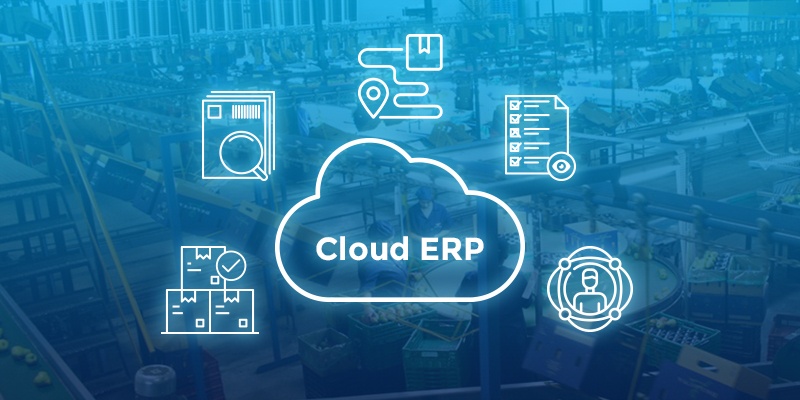Revolutionizing Business Operations with Cloud ERP Systems
Introduction to Cloud ERP Systems
Maintaining a competitive edge demands adopting technologies that enhance operational efficiency and streamline processes in the rapidly evolving landscape of modern business. Among these transformative tools, cloud ERP systems stand out as game-changers, offering advanced features and unique benefits that can fundamentally alter business practices for the better. By examining practical applications and successful implementations, such as those observed in NetSuite support Delray Beach, businesses can obtain valuable insights into leveraging these systems to achieve optimal outcomes.
Cloud ERP systems are designed to integrate a company’s core operations, managing everything from finance to human resources within a single, cohesive platform. This wide-ranging integration enhances visibility across all business functions and supports real-time reporting, a crucial element for informed and strategic decision-making. Accessing critical information from anywhere, at any time, ensures that businesses can respond swiftly to emerging opportunities and challenges, driving growth while maintaining their competitive advantage in an increasingly digital business world.
Benefits of Integrating Cloud ERP
Integrating cloud ERP systems into business operations brings a plethora of benefits that are critical to the success of modern enterprises. First and foremost, these systems offer a cost-effective solution by eliminating the dependence on expensive hardware and reducing the need for ongoing maintenance. This financial relief allows businesses to reassign resources to other strategic areas, fostering expansion and driving innovation. Moreover, cloud ERP platforms provide inherent scalability, permitting businesses to adjust their operations seamlessly as needs evolve without necessitating a complete system overhaul—a process historically associated with extensive time and financial costs.
Furthermore, cloud ERP systems enhance department collaboration by streamlining communication and workflow management. Research conducted by CIO indicates that organizations adopting cloud ERP solutions often experience increased efficiency and reduced interdepartmental silos. The agility offered by these systems ensures that enterprises remain responsive and competitive, allowing them to quickly adapt to market changes and capitalize on new opportunities more effectively than those relying on outdated systems.
Key Features of Modern Cloud ERP Solutions
Modern cloud ERP systems have various advanced features tailored to meet diverse business needs. A standout feature is real-time analytics and data reporting, which provide organizations with immediate access to vital information, a cornerstone for strategic decision-making processes. These capabilities allow companies to proactively identify trends, forecast needs, and troubleshoot potential issues. Furthermore, customization options enable businesses to adapt ERP functionalities to their specific requirements, ensuring that organizations of all sizes and across various industries can harness the full power of these transformative tools effectively.
Common Challenges and Solutions in ERP Implementation
Despite the substantial benefits, implementing a cloud ERP system presents several challenges. Businesses frequently encounter significant upfront setup costs and the complexity of integrating new software with existing legacy systems. However, these hurdles can be effectively mitigated through strategic planning and comprehensive employee training programs. Ensuring that staff possess the necessary skills and support to utilize the ERP system to its full potential facilitates a smoother transition, thus maximizing the benefits derived from the system. This broad approach is crucial to overcoming potential implementation challenges and achieving successful ERP adoption.
Future Trends in Cloud ERP Technology
As we look toward the future, integrating artificial intelligence and machine learning with cloud ERP systems is anticipated to bring about a paradigm shift in the industry. These technologies promise to automate routine processes, minimize errors, and provide deeper insights through advanced predictive analytics. This evolution will enhance the capabilities of cloud ERP systems, equipping businesses with increasingly sophisticated tools to drive innovation, efficiency, and strategic growth. Insights from Forbes emphasize that adopting these advanced technologies will continue to propel industry advancements, further solidifying the role of cloud ERPs as pivotal components of comprehensive business strategies.
Essential Steps for Successful ERP Integration
The successful integration of an ERP system is strongly rooted in attentive planning. Businesses must set well-defined objectives and establish a clear timeline at the onset of the implementation process. Ongoing monitoring of the system’s performance, coupled with user feedback collection, is essential in adapting and fine-tuning strategies as necessary. This holistic, proactive approach ensures that the ERP system is capable of meeting current business demands and flexible enough to adapt to future challenges and technological advancements as they arise.
Real-Life Examples of Successful ERP Adoption
Numerous real-life examples of companies harnessing the transformative potential of cloud ERP systems to drastically improve their operations exist. These organizations frequently report significant enhancements in operational efficiency, substantial cost savings, and bolstered capacity to scale operations effectively. By studying these success stories, firms considering ERP adoption can gather invaluable insights and benchmarks, aiding them in strategizing their implementations and ensuring they maximize the benefits of investing in cloud ERP technologies.
Conclusion
Cloud ERP systems have undoubtedly emerged as pivotal tools in modern businesses striving to enhance efficiency and streamline operations. By overcoming implementation challenges and capitalizing on the strategic advantages provided by these sophisticated platforms, organizations can drive growth while maintaining a competitive edge in today’s increasingly digital marketplace. As businesses navigate the complexities of the modern business landscape, cloud ERP systems offer a scalable and flexible solution that can adapt to changing needs. As technology continues its rapid advancement, embracing cloud ERP solutions remains critical for businesses aiming to thrive and prosper in a landscape characterized by constant evolution.






